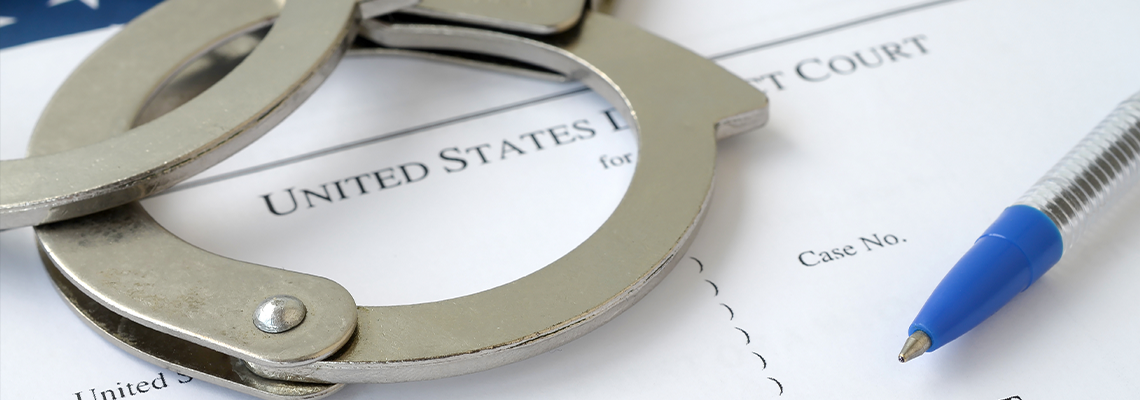
Understanding Search and Seizure Laws in Texas
According to statistics from the Crime in Texas Report, there were 1,006,887 total-reported offenses statewide in 2021. On suspicion of a crime, some law enforcement officers often go through the accused person's property, vehicle, or other belongings to search for and seize evidence connecting the person with a crime.
However, how the search and seizure were conducted will determine whether any evidence obtained in the process will be admissible in court. Generally, the Fourth Amendment of the U.S. Constitution protects citizens from any unreasonable search and seizure by the police. Therefore, it is important that you understand your fundamental rights and use them appropriately when facing criminal charges.
Attorney Phillip Linder is committed to offering comprehensive guidance and skilled representation to clients in their criminal cases. As a knowledgeable Texas criminal defense attorney, he can help clarify your misunderstandings regarding Texas search and seizure laws and craft an effective strategy to uphold your rights. The firm proudly serves clients in Dallas, Texas, and surrounding communities across the Dallas Metro and North Texas.
Your Rights Under the Fourth Amendment
Pursuant to the Fourth Amendment of the U.S. Constitution, "The right of the people to be secure in their persons, houses, papers, and effects, against unreasonable searches and seizures, shall not be violated, and no Warrants shall issue, but upon probable cause, supported by Oath or affirmation, and particularly describing the place to be searched and the persons or things to be seized."
Generally, the Fourth Amendment protects U.S. citizens from unlawful searches and seizures by law enforcement. In addition, the Constitutional Amendment establishes various guidelines for conducting searches on a person's vehicle, home, or property. A valid search warrant signed by the judge is required to search private property. Also, the search must be considered reasonable before a warrant can be issued.
Furthermore, most evidence obtained or seized on private property during an unlawful search and seizure is inadmissible during trial. However, there are specific exceptions that allow the police to conduct a search and seizure without getting a search warrant. Hence, it is important that you speak with a trusted attorney to understand your specific situation and help you make intelligent decisions.
Warranted Search and Seizure
For a search and seizure to be legal in Texas, the police must have probable cause to conduct the search. Under Texas law, probate cause can be described as a reasonable ground to suspect that:
A person has committed an offense,
A person is committing a crime, or
A place contains specific items associated with a crime.
Even when there is probable cause, the police officer is still required to obtain a search warrant signed by a judge to search your private property or arrest you.
Valid Searches and Seizures Without Warrants
There are certain exceptions that might make a search and seizure legal without getting a search warrant. These include:
The person consented or agreed to the search.
The police officer had reasons to believe that the evidence may be destroyed.
The police officer seized the evidence to protect their own personal safety.
The police officer believed that the vehicle contains criminal evidence.
Outside the aforementioned exceptions, law enforcement officers are prohibited from conducting a search and seizure on private property without obtaining a valid search warrant. If the evidence against you was obtained through illegal search and seizure, you should reach out to a trusted criminal defense attorney immediately. Your legal counsel may be able to file a motion to suppress or exclude the evidence during the criminal trial.
Understanding the Exclusionary Rule
Additionally, the exclusionary rule was established to prevent the police or government from using evidence obtained in violation of the U.S. Constitution. Under the exclusionary rule, the Texas court may exclude any incriminating evidence from being presented at trial if the court determines that such evidence was obtained unlawfully or in violation of the accused person's constitutional rights.
If the law enforcement officials obtained the evidence against you through unlawful search and seizure, your defense counsel may invoke the exclusionary rule, preventing such evidence from being introduced at trial. In addition, if the whole reason for your arrest was fraudulent or illegal, the judge may dismiss or drop the charges against you.
Need Representation? Contact The Linder Firm Today
Although the Fourth Amendment grants every American citizen adequate protection from illegal search and seizure by law enforcement officers, various unique circumstances can factor into these incidents. If you are facing criminal charges but believe that the evidence against you was obtained through unlawful search and seizure, retaining an aggressive criminal defense attorney is crucial for detailed guidance and to make sure your rights are not violated.
With more than 30 years of in-depth legal experience, Attorney Phillip Linder has devoted his career to protecting individuals who have been wrongfully arrested from the worst possible punishments. As your legal counsel, he can evaluate your case details, investigate how the evidence against you was obtained and help determine your best defense strategy. Above all, Attorney Phillip Linder will fight vigorously to protect your rights, file a motion to suppress the evidence, and help keep your record clean.
Contact The Linder Firm today to schedule a simple case assessment with a reliable criminal defense lawyer. Attorney Phillip Linder can offer you the strong representation and reliable guidance you need in your case. The firm proudly serves clients in Dallas, Texas, and surrounding communities across the Dallas Metro and North Texas.